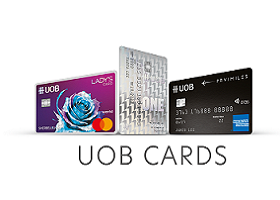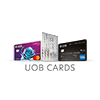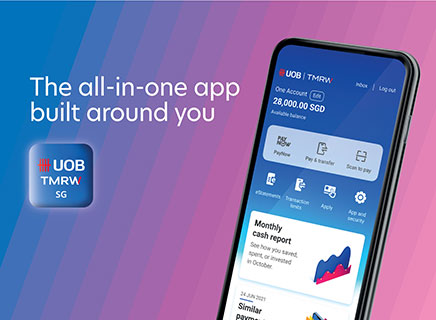For public relations professional Gretchen Lee, travel – be it solo or with friends – is not a luxury but a priority. She packs her bags and jets off to another destination every three months.
The 33-year-old is already eyeing four trips next year: Two longer holidays lasting up to two weeks each and two quick weekend getaways.
How does she afford to do so?
Ms Lee, who declines to share her monthly income, sets aside about $9,000, inclusive of flights and accommodation, for her trips annually. She also does not spend on luxury items. “I’d much rather spend (the money) on things like good food, travelling or attending concerts.”
Her method is practical: After trips, she cuts back on expenses to rebuild her travel fund. “I eat cheaply for a couple of months, avoid unnecessary purchases, and consciously skip cab rides in favour of public transport.”
These little changes help her save up for the next holiday without feeling like she’s sacrificing too much, Ms Lee explains.
Hungry for travel
Despite finances being the top concern for 73 per cent of Singapore residents, travel remains a priority, suggests findings from UOB’s Asean Consumer Sentiment Study 2024. Their other concerns were work-related matters (56 per cent), health and well-being (38 per cent) and geopolitical tensions (38 per cent).
The majority (83 per cent) of Singapore respondents took at least one leisure trip abroad in the past year – whether with friends, family, or by themselves.
Conducted online in June, the regional study polled 5,000 participants aged 18 to 65 from Indonesia, Malaysia, Singapore, Thailand and Vietnam.
Ms Lee is not alone. “Post-pandemic, the desire to travel has remained robust as people prioritise experiences, family connections, and mental well-being,” says Ms Choo Wan Sim, head of Personal Financial Services, TMRW Digital, UOB.
But how they’re travelling is changing.
Ms Choo observes that Singaporeans are becoming savvier when it comes to travel budgeting. For example, they are opting for budget airlines, hunting for travel deals, or taking shorter, more frequent trips.
What are some easy ways to save money when travelling?
- Plan ahead and hunt for deals
One of the simplest ways to stretch your travel budget is to take advantage of the many promotions and discounts available, says UOB’s Ms Choo. Yet, many travellers miss out simply because they don’t take the time to look for these cost-saving opportunities.
Planning early is key. She advises travellers to keep an eye out for flight and hotel deals, and pre-purchase essentials like attraction tickets, transport passes, or eSIMs on travel platforms like Klook. Embedded SIM cards, better known as eSIMs, are digital versions of physical SIM cards.
For UOB customers, the Rewards+ platform on the UOB TMRW mobile application offers a one-stop solution with over 1,000 regional deals, Ms Choo says. These include deals and digital coupons from popular merchants such as dessert cafe After You in Thailand and eatery Oriental Kopi in Malaysia.
Ms Choo notes that the platform’s popularity has surged, citing a nearly 20 per cent year-on-year increase in the number of UOB customers using the Rewards+ platform to search for deals.
- Capitalise on favourable exchange rates
A strong exchange rate can make a big difference to your spending power abroad, says Ms Choo.
For example, the Japanese currency hit a record low of about 120 yen against the Singapore dollar in July. But travellers may have missed the chance to lock in the favourable rate as they were unaware that they could use multi-currency cards and digital wallets such as YouTrip and Wise to do so, she says.
“UOB FX+ is another multi-currency product that makes it easier for travellers to monitor and act on favourable exchange rates,” Ms Choo adds. Using the UOB TMRW app, users can set alerts for their preferred exchange rates, convert currencies ahead of time, and use the UOB FX+ debit card to spend or withdraw cash in their destination country.
The service has seen a surge in uptake this year, with over $1 billion in currency conversions on the UOB TMRW app from January to October 2024. This is nearly three times more than the same period last year.
- Research thoroughly to avoid unexpected costs
Unexpected costs can quickly derail a holiday budget, especially when common expenses are overlooked, Ms Choo says. This includes failing to account for daily transport costs and seasonal price increases during peak travel periods.
To avoid such pitfalls, she advises travellers to do careful research ahead of the trip.
Ms Lee, who describes herself as a planner at heart, agrees.
“I book transportation, accommodation, and activities – like concerts or theme parks – as early as possible. (This way), I know how much I’ll be spending on the trip.” It also helps ensure a more accurate budget and avoid the stress of last-minute expenses, she explains.
What are some tools that can help maximise your travel spending?
Beyond searching for deals, savvy travellers like Ms Lee make use of credit card rewards to reduce costs while enhancing travel experiences.
For example, she uses a credit card that allows her to customise the rewards category based on her needs.
When Ms Lee is not travelling, the self-proclaimed foodie uses the food and beverage category. This enables her to redeem her credit card rewards at her favourite restaurants.
But when a trip is on the horizon, Ms Lee switches gears.
“(On my banking app), I can easily shift the category from dining to travel to consolidate all my upcoming holiday purchases, including flight and hotel bookings,” she explains. This allows her to earn up to 10 air miles per dollar.
Ms Lee is also intentional about her overseas spending.
On a June trip to Japan, she stocked up on clothing from Japan brand Uniqlo. “The haul would have easily cost at least 20 to 30 per cent more if I had bought the same, or similar, items in Singapore,” Ms Lee says.
UOB’s Ms Choo has more tips for stretching travel dollars.
“When overseas, travellers can accelerate their rewards by opting for cards like the UOB PRVI miles card, which offers up to three miles per dollar on overseas spending,” she says.
“Multi-currency cards that charge zero foreign currency transaction fees are (also) useful for saving on conversion costs.” One example, Ms Choo says, is the UOB FX+ debit card that now offers 3.25 per cent cashback on all foreign currency spend, with no cashback cap, until Dec 31.
Related stories
First published in Rethink Your Wealth, a series that provides practical insights and answers on wealth-related topics, to help you transform the way you approach finances.
This publication is for general information and general circulation only and does not have any regard to the specific investment objectives, financial situation and particular needs of any specific person. The information contained in this publication (including any past performance trends of certain investment products referred to in this publication) shall not be regarded as an offer, recommendation, solicitation or advice to buy or sell any investment product and shall not be transmitted, disclosed, copied or relied upon by any person for whatever purpose. Any description of investment products is qualified in its entirety by the terms and conditions of the investment product and if applicable, the prospectus or constituting document of the investment product. Nothing in this publication (including any articles referred to in this publication) constitutes accounting, legal, regulatory, tax, financial or other advice. If in doubt, you should consult your own professional advisers about issues discussed herein.
You may wish to seek advice from a financial adviser before purchasing units in any unit trust (the "Fund"). In the event that you choose not to seek advice from a financial adviser, you should consider carefully whether the Fund in question is suitable for you. Past performance of the Fund or the manager of the Fund (the "Fund Manager"), and any economic and market trends or forecast, are not necessarily indicative of the future or likely performance of the Fund or the Fund Manager. The value of units in the Fund, and any income accruing to the units from the Fund, may fall or rise. You should note that your investment is exposed to fluctuations in exchange rates if the base currency of the Fund and/or underlying investment is different from the currency of your investment. The Fund may use or invest in financial derivative instruments and you should be aware of the risks associated with investments in financial derivative instruments which are described in the Fund's prospectus. The UOB Group may have interests in the Units and may also perform or seek to perform brokering and other investment or securities-related services for the Fund. You should read the prospectus, available from the respective Fund Manager or its distributors, before deciding to subscribe for or purchase units in the Fund. Applications for units of the Fund must be made on the application forms accompanying the prospectus. Investments in unit trusts are not obligations of, deposits in, or guaranteed or insured by United Overseas Bank Limited ("UOB"), United Overseas Bank Asset Management Ltd, Fund Manager or any subsidiary or associate of UOB or any of their affiliates, or by any distributors of the Fund, and are subject to risks, including the possible loss of the principal amount invested. No representation or promise as to the performance of the Fund or the return on your investment is made. There is no guarantee that the Fund will meet its investment objectives.
The information contained in this publication, including any data, projections, underlying assumptions and any articles referred to in this publication, are based on certain assumptions, management forecasts and analysis of known information and reflects prevailing conditions as at August 2024, all of which are subject to change at any time without notice. Although every reasonable care has been taken to ensure the accuracy and objectivity of the information contained in this publication, UOB and its employees make no representation or warranty of any kind, express, implied or statutory, and shall not be responsible or liable for its completeness or accuracy. As such, UOB and its employees accept no liability for any error, inaccuracy, omission or any consequence or any loss/damage howsoever suffered by any person, arising from any reliance by any person on the views expressed or information herein.
This advertisement has not been reviewed by the Monetary Authority of Singapore.















